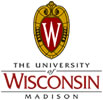School of Medicine and Public Health Joins the SSCC
We are very pleased to announce that the School of Medicine and Public Health has become the newest member of the Social Science Computing Cooperative. SMPH has identified providing its researchers computing resources for working with "big data" as a strategic priority, but most of that data is covered by HIPAA. SMPH therefore approached the SSCC about using our Silo infrastructure. (Our thanks to current SSCC members with SMPH affiliations who brought Silo to the attention of SMPH leadership.)
SMPH is making a substantial investment in new servers for Silo. Initially, they have purchased four new servers similar to Winstat, twelve new servers similar to Linstat, and two Linux servers with twice the cores and RAM as a Linstat server. Over the next year they plan to spend a similar amount, with the servers purchased depending on needs and usage. SMPH researchers will have priority on these servers, but all Silo users will have the opportunity to use them.
They are also funding four new staff positions for SSCC. This will include a new consultant similar to SSCC's existing statistical consultants but with expertise in biomedical research, a new system administrator, a second IT professional for the Help Desk (no more students), and support staff. All SSCC members will benefit from these new staff members.
The project timeline calls for the new servers to be ready for use in March, but the new staff won't be in place until later (and recall that we're already short-handed due to Mark Banghart's departure). SSCC's system administrators and leadership will be extremely busy for the next few months and we ask for your patience. We went through a similar period when the Survey Center joined the Cooperative, and we hope you've seen the benefits of having both Cody Gerhartz and Paul Boyer on staff as a result.
Please join us in welcoming SMPH!
Training
We have several topical workshops coming up, including linear models, mediation analysis, loops and macros, dates, and text data.
Data Wrangling in Python Study Group is a bit of an experiment: rather than presenting the material in class, participants will be expected to read it on their own and then come to class ready to discuss and practice.
We're still evaluating whether we need to offer more sections of Data Wrangling in Stata and Data Wrangling in R this semester or can wait until summer. If you want to take those classes but could not attend last week's sections, contact Caitlin Tefft as soon as possible.
Hold off on ResearchDrive
ResearchDrive is DoIT's new data storage service, with 5TB of free storage for every PI on campus and more available at $200/TB. While ResearchDrive is officially live, their initial roll-out is focused on researchers who do not have support from an IT group like SSCC. Many questions about how ResearchDrive will work in an environment like ours have yet to be answered, including how to access it from servers. We hope that DoIT will work with us so that ResearchDrive will be as convenient and easy to use as our network drives, but for now please hold off on signing up for it.
Windows 7: The End Is Past!
Microsoft released one final patch for Windows 7 last week, which fixed a major security problem, but we do not expect any more patches. With international tensions high and many states using cyberattacks as a policy tool, this is a particularly bad time to be using a vulnerable computer. We have blocked computers running Windows 7 from using our VPN service, and will extend that to other services as needed. Students can get one free Windows 10 license from the Campus Software Library.

